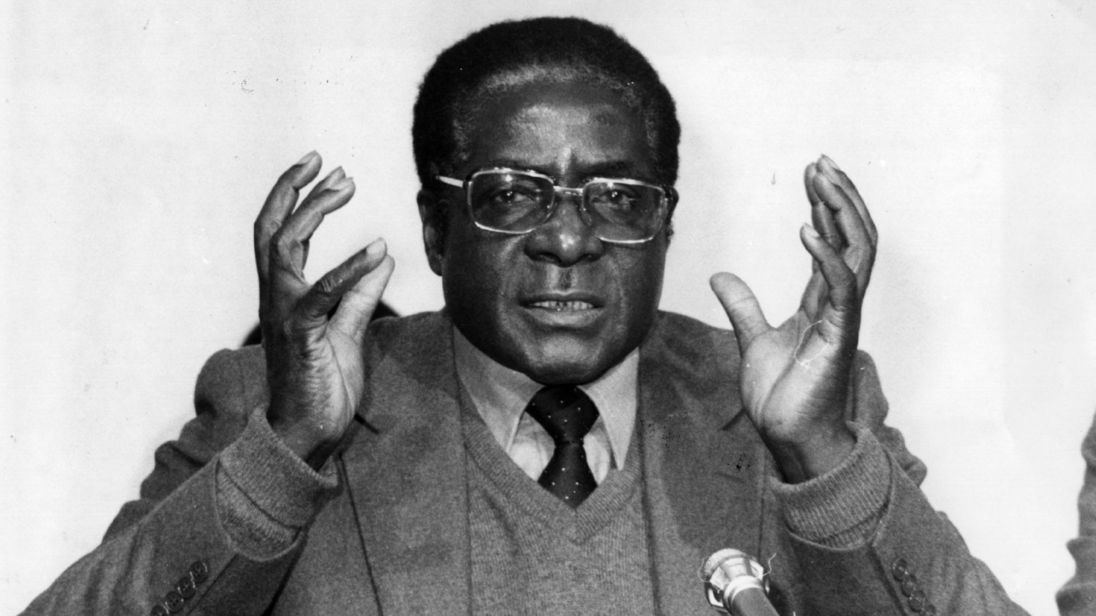Zimbabweans are waiting to see what steps the military will take next after seizing control of the country.
President Robert Mugabe is said to be under house arrest but the whereabouts of his wife Grace, who was bidding to succeed him as president, are unknown.
South African ministers have been in the capital Harare meeting the army and political parties.
The Southern African Development Community (SADC) regional bloc will hold emergency talks on Thursday.
President Mugabe, 93, has been in control of Zimbabwe since it gained independence from Britain in 1980.
But the power struggle over who might succeed him, between Mrs Mugabe and her rival former vice-president Emmerson Mnangagwa, has split the ruling Zanu-PF party in recent months.
Evidence that Grace Mugabe's circle was being pressured by the military came on Wednesday when one of her key allies, Zanu-PF youth wing leader Kudzai Chipanga, made a televised apology for criticising the head of the army a day earlier.
Mr Chipanga is reported to be in army custody but said his statement was voluntary.
Correspondents are asking whether President Mugabe, having hung on to power so tenaciously for years, will offer his resignation.
One Zimbabwean opposition leader, Tendai Biti, told the BBC he wanted to see a transitional authority in place.
"It is urgent that we go back to democracy. It is urgent that we go back to legitimacy but we need a transitional period and I think, I hope, that dialogue can now be opened between the army and Zimbabweans. [That] dialogue can be opened between the army and regional bodies such as the SADC and, indeed, the African Union," he said.
The SADC has called an emergency meeting in Gaborone, Botswana for 15:00 local time (13:00 GMT).
Will President Mugabe play along?
By Andrew Harding, BBC Southern Africa correspondent
No-one is exactly celebrating here - too much remains unknown. But shops and businesses are working and Zimbabwe is quietly adapting to the stunning fact that President Robert Mugabe is still under house arrest, and that no-one is coming to rescue him.
Instead, those now in control here - soldiers and civilians - are trying to convince the world that there wasn't really a military coup at all. More of a forceful reshuffle.
But to win that argument, they need Mr Mugabe to play along.
So the key question now is whether the 93-year-old can be persuaded to make some sort of statement, legitimising the upheavals of the past two days, in return for, what? A peaceful retirement, the safety of his wife and family? Zimbabwe's drama is still unfolding.
There have been no reports of unrest in Zimbabwe. Correspondents say many people have accepted that President Mugabe is being eased from office. Streets in Harare are said to be quieter than usual but people are going about their business.
On Wednesday, troops and armoured vehicles encircled parliament and other key buildings.
Hours earlier, soldiers took over the headquarters of national broadcaster ZBC and issued a statement saying that the military was targeting "criminals" around President Mugabe.
On national TV, Maj Gen Sibusiso Moyo denied there had been a coup, saying: "This is not a military takeover of government."
He said Mr Mugabe and his family were "safe and sound and their security is guaranteed".
"As soon as we have accomplished our mission we expect that the situation will return to normalcy," he added.
But despite the reassurances, key regional bloc the African Union said the takeover of power and the detention of President Mugabe "seemed like a coup".
On Wednesday the office of South African President Jacob Zuma said he had spoken by phone to Mr Mugabe who had indicated "he was confined to his home but said that he was fine".
Mr Mnangagwa was removed from the vice-presidency earlier this month following a call for his dismissal from Mrs Mugabe.
Tensions were raised further on Monday when army chief Gen Constantino Chiwenga said the army was prepared to act to end purges within Zanu-PF.
Gen Chiwenga is a close ally of Mr Mnangagwa and both are veterans of the 1970s war which ended white minority rule.
Â





